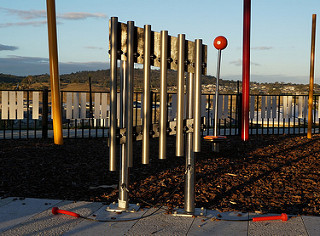Fourth Biennial Public Law Conference
Faculty of Law, University of Ottawa, 17-19 June 2020
From 17 to 19 June 2020, the Faculty of Law, University of Ottawa will hold the fourth biennial Public Law Conference, co-organised by the University of Ottawa, the University of Melbourne and the University of Cambridge. The Public Law series is the pre-eminent regular forum for the discussion of public law matters in the common law world. The first conferences in the series were held at Cambridge in 2014 and 2016, and the third in Melbourne in 2018. The 2020 conference will feature approximately 80 speakers, including leading judges and scholars drawn from across the common law world, to discuss the most important issues in public law today. The conference series is sponsored by Hart Publishing Ltd.
The
theme of the conference will be ‘Public Law: Rights, Duties and Powers’. Like
the themes of the previous conferences in the series, the theme of the 2020
conference aims to facilitate a number of streams of inquiry while setting
parameters that will enable meaningful dialogue both within and across those
streams. In particular, the theme is intended to invite engagement with a range
of topics related to the conceptual building blocks of public law systems, with
a focus on rights, duties and powers. We welcome papers which engage with the
theme from doctrinal, theoretical, comparative, contextual or other
methodological perspectives. In keeping with the fact that the next
conference takes place in Canada, the 2020 version will include sessions which
consider the conference theme from the perspective of mixed jurisdictions.
Topics
may include:
Rights
- Rights-based theories of public law, and critiques of such theories.
- The role of different public institutions such as the legislature, executive, courts or fourth branch of government, in recognising, interpreting and implementing rights.
- Adjudication of specific rights-issues in comparative perspective.
- The nature of different types of public law rights, including human, Indigenous, welfare and fundamental rights, and consideration of different sources of rights, such as constitutions, Indigenous law, statutes, and the common law.
- The connection between public law rights and remedies, and the impact of rights-commitments on public decision-making.
Duties
- Theories of public law based in duties, such as fiduciary duties, and critiques of such theories.
- The nature and legal regulation of different types of public law duties, including duties owed by the state to Indigenous peoples, individuals, and to the community as a whole.
- The role of courts, the administration and other institutions in interpreting and implementing public law duties, including aspirational duties, duties of progressive realisation, and duties to provide public goods.
Powers
- Distribution of powers between central and subnational jurisdictions, and within single jurisdictions.
- The nature and legal regulation of public powers including statutory, prerogative, executive, de facto, and contractual powers.
- How public law principles may inform legal regulation of powers exercised by private or international institutions.
- How public law ought to respond to new modes of public power such as new technologies and soft law techniques.
Prospective speakers are
invited to submit abstracts of no more than 500 words addressing any aspect of
the conference theme. Abstracts must be submitted by 2 September
2019 using this
application form. The completed form should be emailed to the conference
convenors at droitpubliclaw@uottawa.ca Abstracts are invited
from those at any career stage. Up to 60 papers may be accepted and papers will
be selected on the basis of merit and fit with the conference theme. Those who
have their abstracts accepted will be required to submit a full written paper
by 1 May 2020 for distribution to conference delegates. Please note that
speakers will have to meet their own expenses and pay the conference fee in the
ordinary way. The 2020 conference, like the 2016 and 2018
conferences, will include dedicated panels for doctoral students, and a
fee-waiver programme has been established for doctoral candidates whose papers
are accepted.
In common with previous conferences it is intended that an edited collection will be published by Hart Publishing, the conference sponsor, of a small selection of the papers given at the 2020 conference.
photo credit: Onasill ~ Bill Badzo Adirondack Mountains – Whiteface Mountain – Lake Placid – New York- – Hot Air Balloons via photopin (license)









